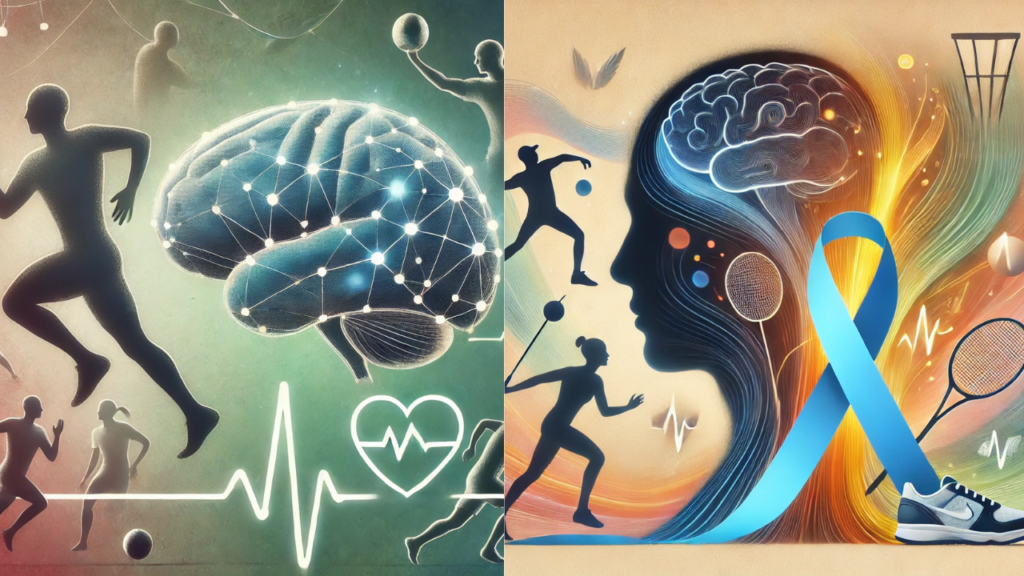
A common perception is that elite athletes are super-fit in every sense, including being strong in the head. For those who grew up hearing the phrase ‘chokers’, especially in tennis, a player unable to handle key moments or pressure was viewed as one who lacked killer instinct. These days, such phrases are avoided, since people recognise what damage they can do.
Today, on World Mental Health Day, each person in society has a role to play. Work places are supposed to provide an atmosphere where nobody suffers from pressure which can affect performance or lead to a dangerous situation, as was witnessed recently in a big multinational company. Modern-day sport, too, attaches enormous importance to mental health, which encompasses various aspects.
Mental-health trainers, sports psychologists and counsellors are increasing prevalent in individual as well as team sports.Under the umbrella of mental health, everything is covered now. Even if you take various sports leagues now established in India, there are psychologists and experts hired by both federations and teams/franchises. Recently, at the Paris 2024 Olympics, experts were brought on board to help the Indian contingent.
Look at some examples of how a top athlete handles pressure or stress. He or she may not be able to articulate what is going wrong or what went wrong. Take the case of Lakshya Sen, who was admonished after his loss in Paris, by none other than the legendary Prakash Padukone. Even though Lakshya is a strong young man, he would have been pensive and wanted someone to tell him what he had done wrong. To make an athlete feel guilty is the worst thing. Nobody competes to lose. In the old days,coaches did shout at their wards after a loss, often using choice words. That is no longer acceptable.
Rewind to the Tokyo Olympics held three years ago, when the Covid-19 pandemic was raging in Japan’s capital. The very thought of having to undergo antigen testing twice a day was scary for many Indian athletes. Most spoke of it in hushed tones, but that was a fear which most sports psychologists would have struggled to handle. If you take the case of Manu Bhaker, she was subjected to trolling and more after her failure to win a medal in Tokyo. She was terribly upset, and even today, refers to that period as the “dark days” of her career. To come back from that difficult stage, reboot and then peak at the Paris Olympics involved much more than just hard work and good coaching. She had a solid support system where her coach and family played a big part.
There are those who think mental health issues exist only among elite athletes.That is wrong. Failure to perform and being unable to deal with performance-related stress are the key issues that sports psychologists or mental health experts deal with. The work they do is aimed at making the athlete feel comfortable. Someone like Leander Paes, a titan of Indian tennis, would often peak and defeat opponents, even when not expected to, in the theatre called Davis Cup. Way back in the 1990s, Leander used to consult Jim Loehr, a fantastic performance psychologist, in the USA. And those sessions with Loehr didn’t come cheap.
Today, Leander is involved with the Shrachi Group and plays an important role. He is seen at auctions where Shrachi have bought teams in leagues. Be it motorsport’s Indian Racing League or the Hockey India League, Leander is there. Surely, he will have so much to offer as inputs on mental health as well, given his vast experience and how he was so often the underdog who produce phenomenal performances. And he will also be advising the owners about how important it is to hire people who can cover all flanks, since coaching today is not just about getting one individual on board.
At the Paris Olympics, there were so many fourth-place finishes for Indian athletes. Imagine the plight of an Arjun Babuta or Maheshwari Chauhan, who missed medals so narrowly. They are preparing now for the next Olympic cycle. As Raja Randhir Singh, the president of the Olympic Council of Asia, told RevSportz, “It is better to finish sixth than fourth.”
To miss a medal leaves the athlete distraught. Babuta had spoken quite recently about how miserable he felt. Indian sports has made a beginning, but a lot more can be done to address mental-health issues from a nascent stage.
LIVE: Actioning the IOC’s Mental Health Action Plan 2023 | Gamechangers Law – RevSportz https://t.co/E4twBQeGGv
— RevSportz Global (@RevSportzGlobal) October 10, 2024
For more sports content: https://revsportz.in/




